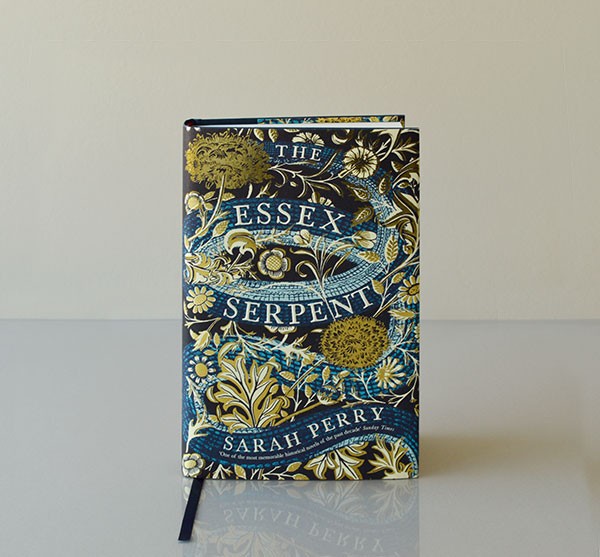The story settles around Cora Seaborne. The recent widow of an influential London civil servant towards the end of the Victorian era. Her new-found freedom from her cold and abusive husband allows her to leave the bustling big city for village life in Essex to exercise her passion for palaeontology. Upon hearing the widespread rumour that the Essex Serpent, a creature from local folklore, had returned to terrorise the people and livestock and was blamed for a series of deaths in the area, that her passion is piqued.
In her excitement to verify the claims, she comes up against the local clergyman Will Ransome, who is intent on convincing his congregation that the monster is nothing more than fear and superstition.
The book is the award-winning second novel by Sarah Perry, published in 2016. This was my first introduction to Perry, who it turns out grew up in Essex to a strict Baptist family and spent much of her time with classical literature and music since access to more contemporary forms of media was restricted. She has described how the King James Bible was a strong influence on her writing and she studied gothic literature for a PhD as well. It’s clear to see how these have impacted on this book.
There were several things I enjoyed while I was reading this book. The interplay between Cora Seaborne, Will Ransome and his wife Stella. It was interesting to see how all three of them perceived the times that they met as we were given each of their thoughts. I also found the prose beautiful and engaging and operatic in its own way. It is like very few contemporary books, and that in itself makes it a fascinating read as it harkens me back to reading Frankenstein at school!
I found the locations and settings and their descriptions lifelike and believable and I also enjoyed the way in which the characters wrestle, at least to a small extent, with religious belief and superstitious belief, especially when a clergyman is forced to argue for one but not the other and when Cora challenges him on it, leading to my favourite quote:
“I had faith, the sort of thing you might be born with, but I’ve seen what it does and I traded it in. It’s a sort of blindness, or a choice to be mad - to turn your back on everything new and wonderful - not to see that there’s no fewer miracles in the microscope than in the gospels!” - Cora Seaborne
On the other hand, there was so little real conflict in the story. I was hoping for Cora’s entry into the rural life of Essex to make real waves, but we never get that impression. People just seem so polite that I found it a little bit dull. No drama, gossip, suggestions of impropriety between the married vicar and this interloping widow. I wanted more arguments, deeper discussions, and to hear more of Cora’s innermost thoughts. And when we finally got those, right at the end, the story was almost over.
I found it boring. I think it took me about three quarters of the book to begin to care about any of the characters. This was my biggest struggle with the book and really hindered my enjoyment. I just did not care for the different characters and only continued reading because a friend had recommended it to me!
Even if I didn’t engage with the characters, there are several things which I would take from the book. Perry’s ability to write in different dialects was excellent and it clearly showed another way to distinguish characters from different locations or strata of society. Couple that with the widely varied chattiness of different characters and it makes for clearly differentiated personalities in the story. Both of those are things I could definitely work on in my own writing.
Perry obviously did a great deal of research for the book, and the detail with which she described Victorian-era surgery was definitely a highlight for me!
Her clear descriptors for her different locations really caught my eye. It was easy to feel the difference between London and her invented Essex town Aldwinter. She definitely goes into a lot more descriptive detail than I do when I’m writing fiction, although that fits with the Gothic nature of this story.
In the end I found The Essex Serpent a book that definitely has positives, but I just didn’t find myself caring until the end. Reading it felt more like a literary exercise to complete than a gripping story.
⭐️⭐️⭐️★★
